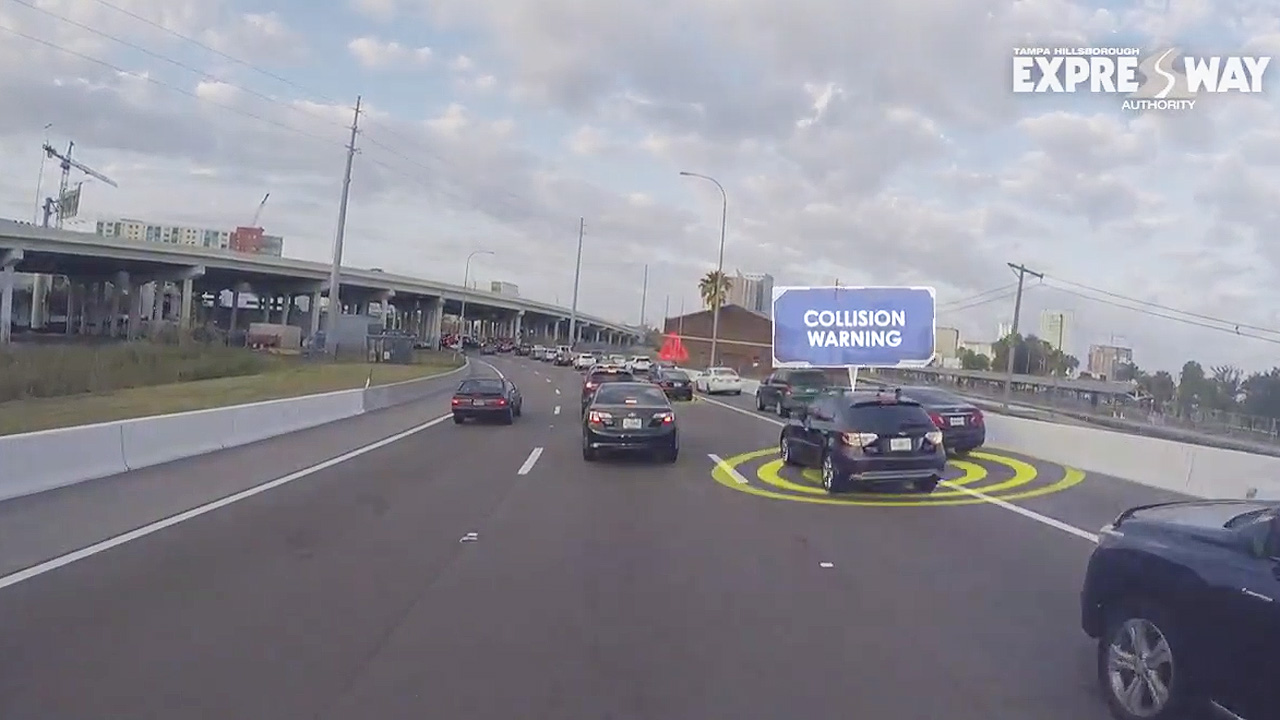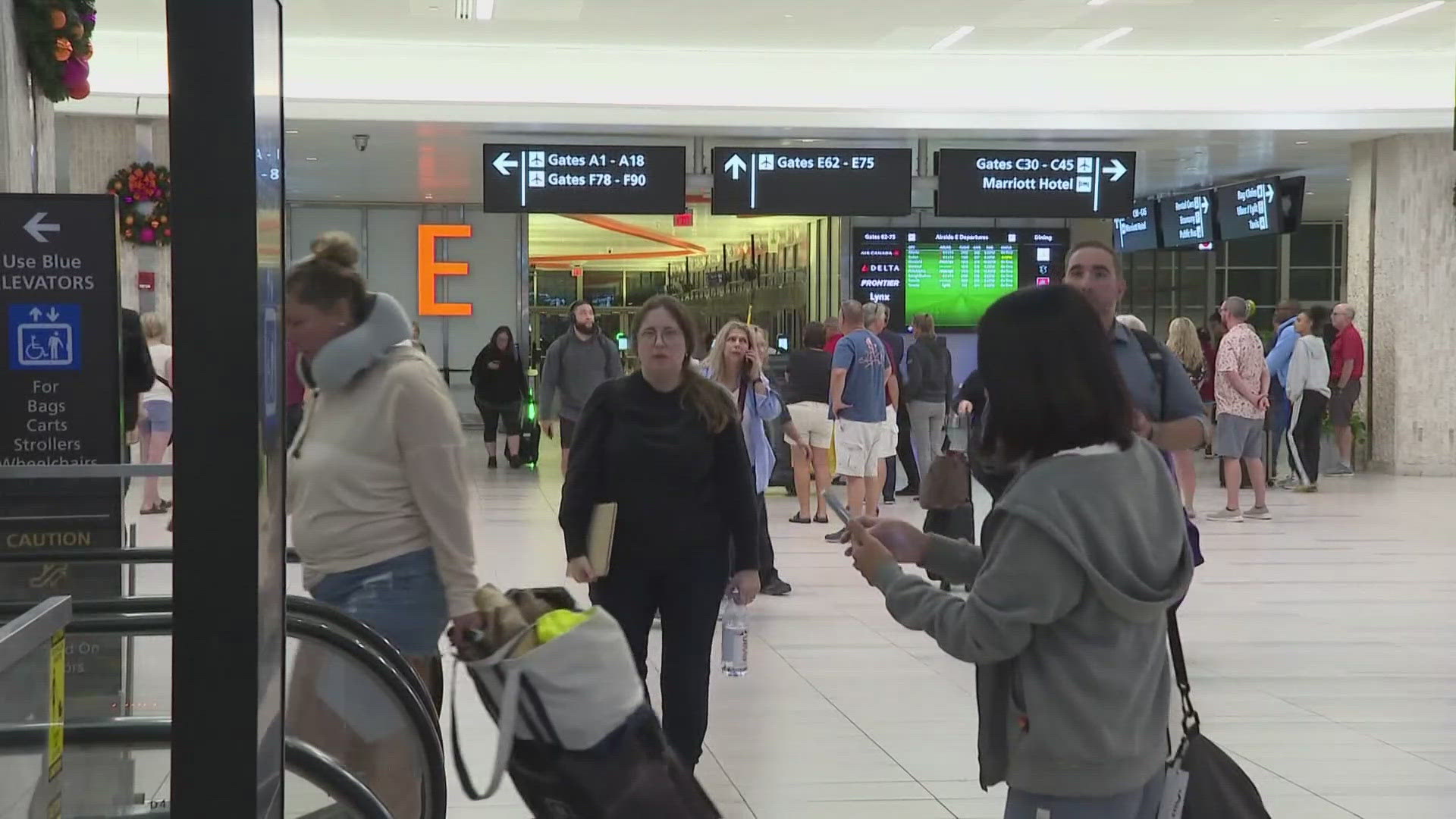TAMPA -- Think about all the roadway hazards around Tampa Bay. Wrong way drivers. Traffic snarls the back up for miles.
Now imagine your car warning you ahead of time, saving you aggravation and maybe even your life.
Well, technology that could do just that is being tested right now in Tampa Bay.
The Tampa Hillsborough Expressway Authority shut down its reversible lanes on the Selmon Expressway Monday to demonstrate its Connected Vehicle Technology. Cars fitted with sensors, sharing information with each other and a network of receivers mounted around town.
“That helps them understand not only where they are, but other vehicles in real time - even around corners and such,” said Senior Project Manager Steve Novosad.
The test drive comes ahead of the Florida Automated Vehicles Summit happening this week in Tampa.
But Novosad said this isn't driverless technology. It's a communications network that keeps you in control.
“You will get the warning, but it's entirely up to you to make a decision about what you're going to do<” said Novosad.
During the demonstration, our test car was intentionally steered the wrong way onto the highway. Immediately, and alarm sounded, and a visual waring flashed “do not enter” in the rearview mirror.
A similar collision warning appeared as the test vehicle rapidly approached the rear of another test car.
In addition to cars being able to talk to each other, there will also, during the pilot program, be more than 40 RSU's, scattered around downtown Tampa. The receivers constantly monitoring traffic flow, regulating traffic lights.
There’s even an app for smartphones so pedestrians can let the network know when there are people crossing the street and avoid car vs. pedestrian accidents.
All the information is also shared with traffic control workers, who can then adjust traffic signals in real time to keep things moving. Reducing congestion. And pollution.
“If we can make traffic flow smoother where people don't have to stop in idle, obviously we are not emitting greenhouse gases. And having an impact, so that the carbon footprint from this area could go down significantly,” said Novosad.
And most importantly, the technology is predicted to save lives. By some estimates it could reduce unimpaired traffic crashes by 80%.
Which is why Novosad says for him the project is personal.
“I think about my five and seven-year-old grandsons. Ten years from now they're going to be driving. This technology will be in the car. And it may save their life,” he said.
The hardware, which can be installed in almost any vehicle, would likely cost around $1000, and should be widely available in the next ten years or so.
The US department of transportation is only testing this technology in a handful of markets.
Tampa is completely unique because the program, scheduled to start mid-2018, will utilize a small army of civilian drivers – about 1600. Four hundred spots are still available.
THEA will install the equipment, and participants receive a 30% reduction on tolls up to $550.
As part of the $21-million project, Hillsborough Community College is also training technicians to properly install the equipment in people’s cars.
If it sounds like something you might be interested in, contact them at www.TampaCVpilot.com.
►Make it easy to keep up-to-date with more stories like this. Download the 10 News app now.
Have a news tip? Email tips@wtsp.com, visit our Facebook page or Twitter feed.


